-
JJ Green is the National Security Correspondent at WTOP radio in Washington, DC. He reports daily on international security, intelligence, foreign policy, terrorism, and cyber developments and provides regular on-air analysis on both radio and TV. He is also the host of Global with JJ Green on YouTube. He hosts the weekly podcast Target USA, which examines the threats facing the US. Mr. Green also hosts the weekly broadcast programme “The Hunt” and conducts in-depth interviews with experts on ISIS, al-Qaida, the Taliban, and other emerging terror threats. He has been embedded with the US military three times in war zones. In 2023, Mr. Green was awarded an honorary doctorate by Champlain College in Vermont for his international security reporting and analysis. He’s received dozens of state, regional, national and international awards for his work including the 2017 Gerald R Ford Presidential Foundation Award for Distinguished Reporting on National Defense for his series “Anatomy of a Russian Attack.” He also received a National Edward R Murrow Award in 2009 for “Hidden Hunter” -his reporting aboard the L.A. class, nuclear submarine -the USS Miami. He regularly lectures at universities and speaks to U.S. defense and intelligence agencies and organizations.

JJ Green
WTOP news, USA
-
Prof. Marju Lauristin (born 1940) is the Professor emeritus at the Institute of Social Sciences of the University of Tartu. She has done extensive research in the field of integration and has been involved in the development of the base principles of the Estonian Integration policy since 1998. In 1998 – 2002 and 2004 – 2008 she was part of the expert committee of the Framework Convention for the Protection of National Minorities (FCNM) of the European Council. In 2014 – 2018 she served as a member of the European Parliament, belonging also to the EP committee dealing with the issues of fundamental rights and democratic liberties (LIBE). She is one of the authors and editors of Estonian Integration Monitoring 2023.
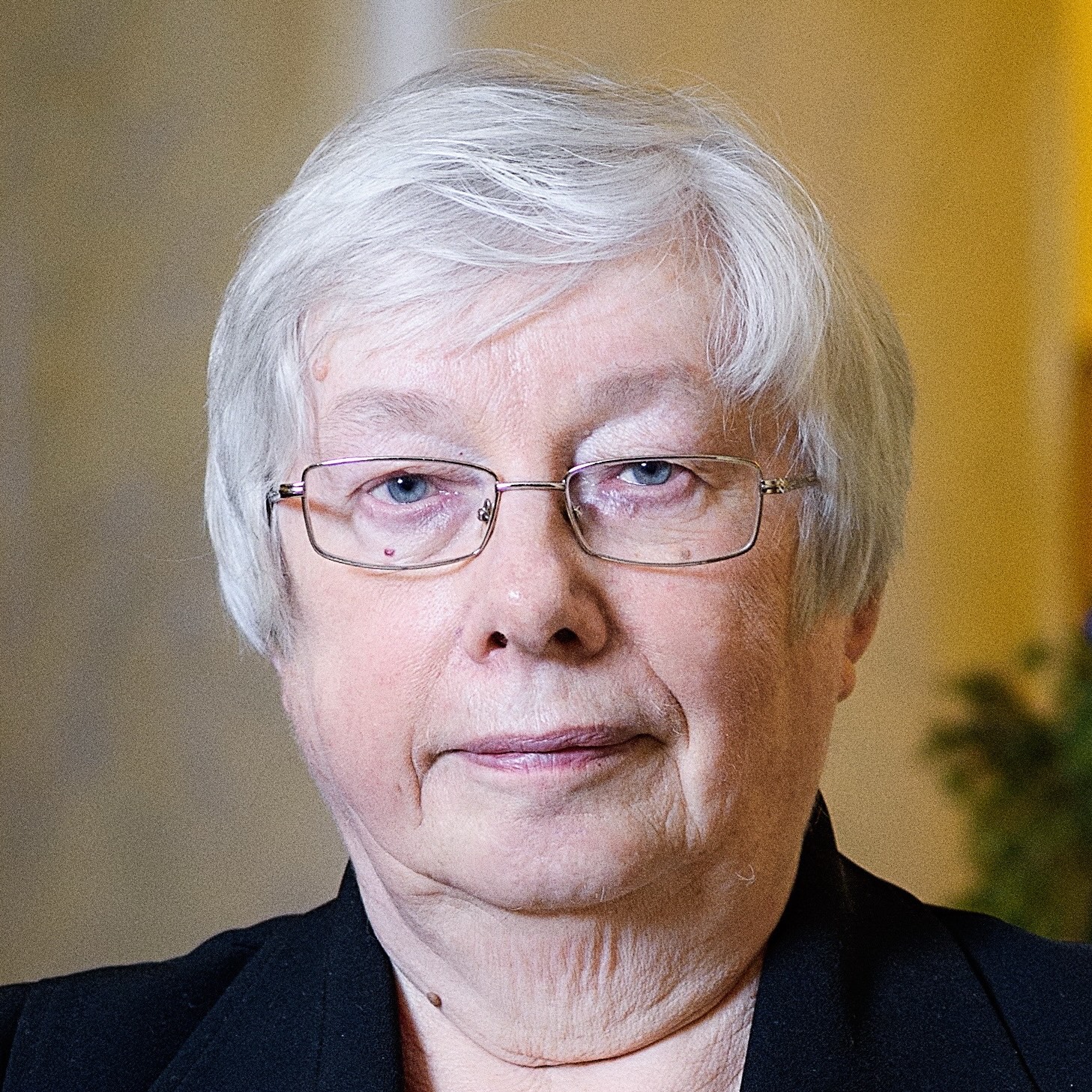
Prof. Marju Lauristin
Professor emeritus at the Institute of Social Sciences of the University of Tartu
-
In her long career as a BBC foreign correspondent, Prof. Bridget Kendall was the BBC Moscow correspondent for five years from 1989-94, covering the restoration of independence to the Baltic states as well as the turbulent events which eventually led to the collapse of the Soviet Union. In the 1990s she spent five years as BBC Washington Correspondent and from 1998-2016 covered major news events across the globe in the senior role of BBC Diplomatic Correspondent. Her book The Cold War; a New Oral History explores the decades long conflict through eyewitness accounts.
From 2008-2023 she hosted a weekly radio discussion programme for the BBC, The Forum, with venues including the British Museum, the Sydney Opera House and CERN, home of the Large Hadron Collider in Switzerland.
In 2016 she was appointed the first female Master of Peterhouse, the University of Cambridge’s oldest College, serving until 2023. She also served as a Deputy Vice-Chancellor of Cambridge University 2020-2023. She is on the Council of the leading thinktank, Chatham House, and the Council of Advisors for RAND Europe.
Her awards and honours include the James Cameron Award for distinguished journalism and an MBE (Member of the British Empire) for services to journalism. She holds Honorary Doctorates from St Andrew’s, Exeter and York Universities and from the Central University of Birmingham. She is an Honorary Fellow of Peterhouse as well as two Oxford Colleges and the British Academy. 
Prof. Bridget Kendall MBE Hon FBA
University of Cambridge
-
Agnese is an internationally certified Diversity Manager and Business Anthropologist. She has contributed to awareness raising, knowledge transfer and consulting in diversity management to local and international organizations since 2019. Agnese has conducted research, led projects, consulted, published, been a lecturer, speaker & moderator on such topics as Diversity, Equity, Inclusion, Belonging (DEIB), Diversity Competence and Management, Internationalization of Nordic organizations, Intercultural understanding & Trust, Sustainability & Development, Culture & Business in Nordic, Baltic and Middle East societies. Agnese holds Masters’ and PhD degrees in Social Anthropology from the University of Bergen (Norway). She has extensive international experience working with Nordic organizations in academic, corporate and diplomatic sectors. Agnese is also a writer and has recently published a monograph “Searching Sustainability in Arabian Deserts. An Anthropology of Market and Oil” based on her research on social and environmental sustainability in the Arab Gulf. At PwC Latvia Agnese is Pan-Baltic Diversity & Inclusion Leader and a member of the CEE Inclusion & Diversity team, helping companies to develop competence and implement strategies that promote diversity, inclusion, and equal opportunities in the workplace.

Dr. Agnese Cimdina
Head of Diversity & Inclusion practice in the Baltics, PwC Latvia
-
Göran Larsson is Professor of Religious Studies at the University of Gothenburg, Sweden, and he is also a Guest-Professor at the Faculty of Police at Borås University, Sweden. Larsson’s research is focused on Islam and Muslims in Europe in past and present times, but over the last decade he has mainly done research on how global conflicts impact on local communities and public discussions about religion and conflicts. For more information about his research and publications see here.
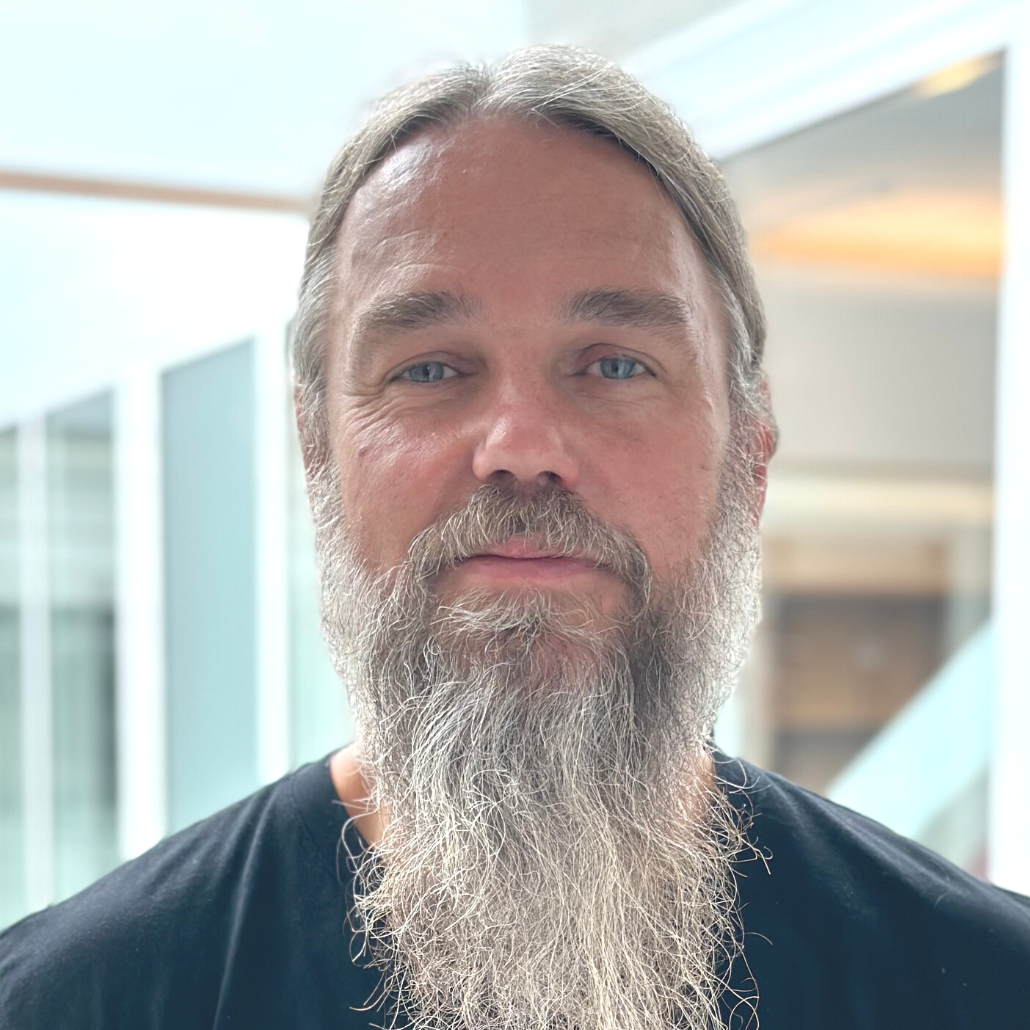
Prof. Göran Larsson
University of Gothenburg
-
Steffen Saigusa Nielsen has worked in crime prevention for more than 30 years. Among other things he is the architect behind “The Aarhus Model”, a method of preventing radicalization and violent extremism through multi agency collaboration. He also works with exit from organized crime and advises the courts on sentencing minors facing charges of violent crimes. Steffen Saigusa Nielsen works for The City of Aarhus and East Jutland Police Department. On this conference he will speak on “The Aarhus Model” as a way of integrating marginalized extremists back into society.

Steffen Saigusa Nielsen
Aarhus City Police
-
Dainius Babilas has been working in the field of social cohesion and integration of national minorities for more than 20 years. Since 2004, he has been the Director (CEO) of Kaunas Cultural Centre of Various Nations. While working in the largest cultural and integration center of national minorities, which was established in the second largest city of the country, he paid a lot of attention to the organization of projects and events in the field of culture, education and youth, as well as to international cooperation, which was based on the Erasmus+ program. Also, he represented national minorities in Lithuanian Council for Culture, was a member of the board of Roots & Routes International – international network for the promotion of cultural and social diversity in contemporary performing arts and media. Since July 2024 he started working as Director (CEO) of Department of National Minorities under the Government of the Republic of Lithuania. The Department is the main state institution responsible for the implementation of the policy on national minorities, and it also participates in its formation.

Mr Dainius Babilas
Department of National Minorities, Lithuanian Government
-
Dr. Katy Radford MBE is an independent consultant who joined the British Council as a Trustee in 2023 and has been Chair of its Northern Ireland Committee since 2022. She is currently the UK Electoral Commissioner for Northern Ireland and has previously served as Vice Chair of the Arts Council of Northern Ireland, as the sole woman of 13 appointees to the Commission for Flags, Identity, Culture and Tradition, and as a board member of the Northern Ireland Equality Commission. She was the first elected chair of the Race Equality subgroup convened by the Office of the First and Deputy First Ministers, where she represented the Jewish community.
After graduating from Queen’s University Belfast in Social Anthropology with a focus on Ethnomusicology, she worked with victims and survivors of the conflict in Northern Ireland and with minoritised communities firstly at the former Institute for Conflict Research and then at the Commission for Victims and Survivors. She has a practical interest in furthering the arts as agents for change, social inclusion, post conflict recovery and resilience building and was awarded an MBE in 2008 by HM for advancing good relations. 
Dr. Katy Radford MBE
The British Council, Chair of its Northern Ireland Committee, United Kingdom
-
Dmitri Teperik has over a decade of top-level experience contributing as a director or a leading subject-matter expert to a range of international research projects, interdisciplinary studies, development cooperation programmes, professional trainings, and outreach activities on comprehensive resilience and complex measures against foreign hostile influence and disinformation. He has conducted research into a number of key areas, including the socio-psychological factors of national identity, societal resilience and cohesion, cognitive security, cross-sectoral crisis management, media consumption, and situational awareness in an information environment. His principal areas of interest are Ukraine, the Baltic states and post-communist countries in Eastern Europe.
In 2016, Dmitri Teperik was a co-founder of the international training and cooperation platform Resilience League, which focused on equipping young professionals and experts with practical skills and tools for developing cognitive resilience against hostile disinformation, societal polarisation and harmful radicalisation.
Dmitri Teperik has authored over 70 publications, including policy reports, articles, analytical studies, and others, on a range of topics related to societal resilience, FIMI, media and information literacy, strategic communication, and civil security. 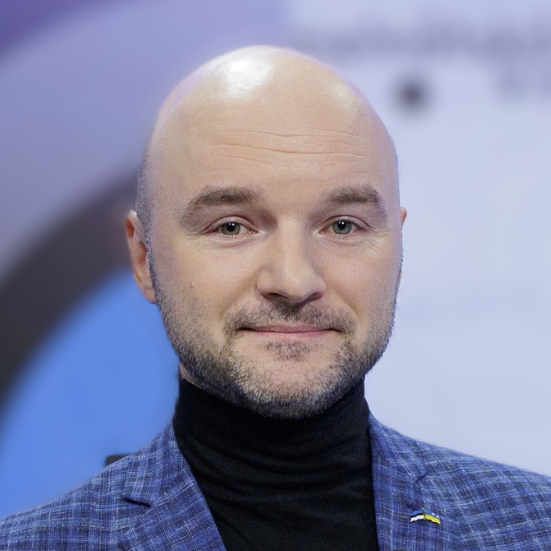
Dmitri Teperik
Director, National Centre of Defence & Security Awareness (NCDSA), Estonia
-
Pavol Kosnac is the director of DEKK Institute in Bratislava, researcher at the Institute of Ethnology and Social Anthropology of the Slovak Academy of Sciences and a Fellow of the Royal Anthropological Institute in London. His current work focuses on interdisciplinary study of ideology and group cohesion in the context of social stability, religion, violence and war. In the last 15 years he mostly studied groups that do not feel comfortable in the mainstream society and seek to offer an alternative to it – be it new religious movements, counter-cultural subcultures or paramilitary groups. He also works as a consultant and fieldworker for humanitarian organizations and universities around the world, including the United Kingdom, Iraq, Syria, Ukraine and Thailand. He co-authored religion studies book Fiction, Invention and Hyperreality, published by Routledge in 2017 and sociological book Cohesion in Slovakia by DEKK Institute in 2023.
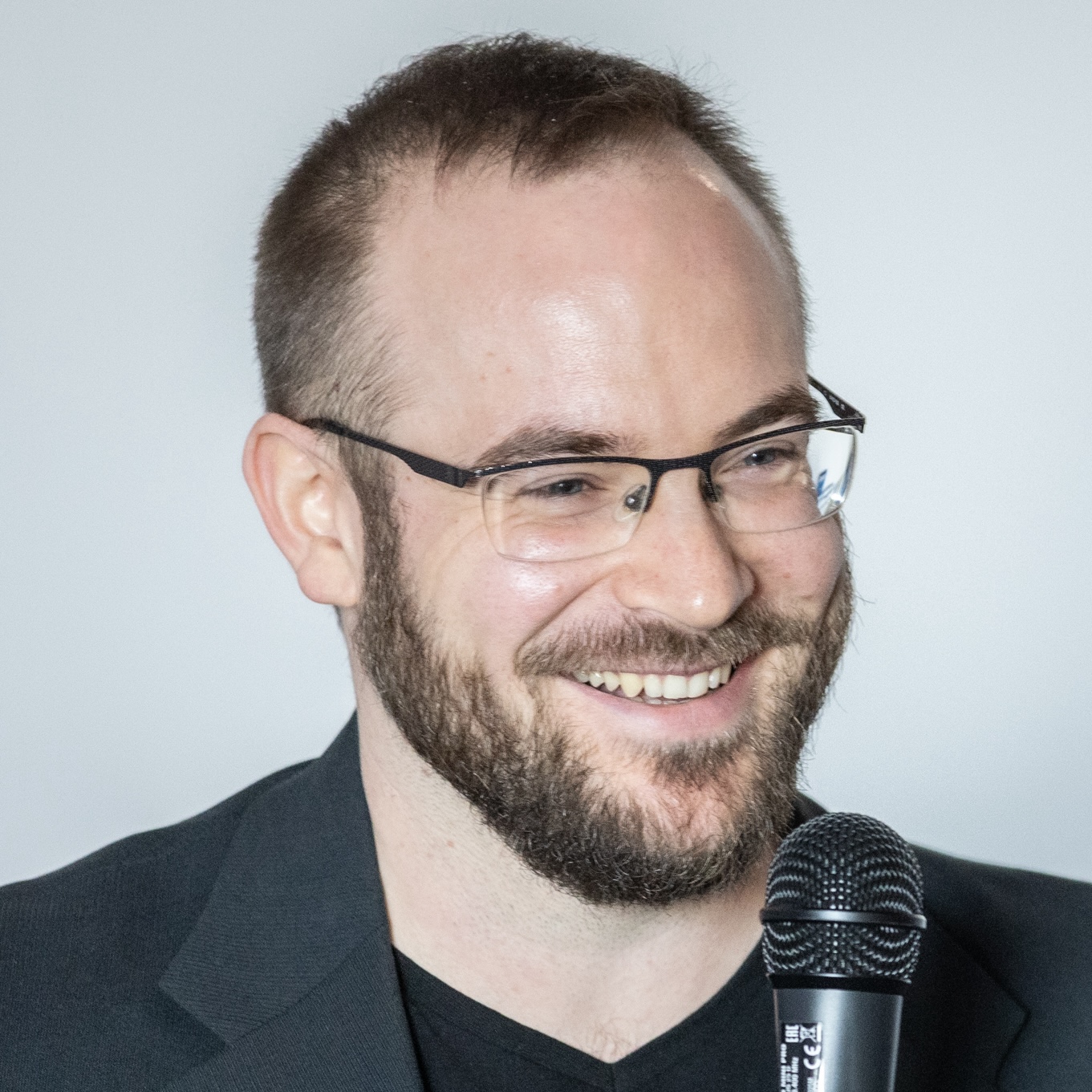
Pavol Kosnac
Director of DEKK Institute, Slovakia
-
Claudia Schröter is a producer based in Erfurt, Central Germany. Born and raised in former East Germany, she studied Communication Sciences at Ludwig Maximilian University Munich and Production and Media Business at the University of Television and Film Munich. Since 2008, Claudia Schröter has been developing, producing, and co-producing for a wide variety of formats, genres, and target groups. In 2020, she co-founded CALA Film Central, followed by CALA Film West in 2022, expanding CALA Filmproduktion, originally established in Berlin by producer Martina Haubrich in 2016. CALA Film is known for its focus on artistic storytelling and collaboration with both newcomers and experienced talents. CALA Film is dedicated to fostering new perspectives and actively collaborates with prominent partners while securing funding from various institutions, significantly contributing to the European film landscape. As a producer, Claudia Schröter is also engaged in initiatives addressing media challenges in contemporary society. She is a member of the German Children’s Film Association, the Animation Association Germany, the German Producers Association, and the European Producers Club.
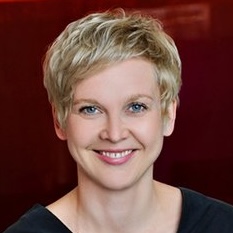
Claudia Schröter
Film producer, “Turning tables”
-
I am working as an Associate Professor of Media Studies at the Institute of Social Studies, University of Tartu. In my research, I focus mainly on young people’s use (and non-use, going “off the grid”) of social media and different literacies (e.g. digital, MIL, social media, porn). Several of my studies have explored various online risks (e.g. gendered online hate, online shaming, online child sexual abuse and grooming). To keep things balanced, I try to sprinkle some opportunities into the mix as well, studying influencer culture and digital activism, as empowering phenomena. But most of all I love teaching. If you can stomach some humblebragging, allow me to do so – I was the recipient of the 2020 Estonian National Award for the Teacher of the Year and have supervised several award-winning theses.

Prof. Maria Murumaa-Mengel
Associate Professor of Media Studies at the Institute of Social Studies, University of Tartu
-
Dr. Justin E. Lane is the CEO and Co-Founder of CulturePulse AI, a US-Slovak AI company focused on the creation and analysis of social AI and digital twin technology. For over 10 years, Dr. Lane has worked to create new AI systems to study and predict aspects of social cohesion ranging from hybrid threat and counterterrorism to policy risk analysis and crisis management. He received his doctorate from the University of Oxford. Dr. Lane has held positions at universities in the US, UK, Czech Republic and Singapore and in addition to his role as CEO at CulturePulse is currently affiliated with the Slovak Academy of Science and is the Scientific Director at the DEKK Institute in Bratislava. His work has been discussed in WIRED, BBC, The New York Times, Vice News, New Scientist, The Atlantic, and Joe Rogan Experience. He has also worked in business development and innovation consulting for start-up and investment firms in Central and Eastern Europe, helping them obtain over EUR80m in funding since 2020. His book, Understanding Religion through Artificial Intelligence: Bonding and Belief, is available through Bloomsbury, and was nominated for the 2023 ISSR Book Prize.
Dr. Lane has over 70 peer reviewed articles and conference presentations, and a book with Bloomsbury (UK: London) on how to use AI to study religion and culture. To date, his work has received international acclaim and over 850 citations (his Doctorate was completed in 2019). He also is a co-founder, with LeRon Shults at ALAN Analytics, s.r.o, a Slovak-based IP holdings company. Together, Drs. Lane and Shults have raised approximately US$90m in R&D&I grant funding for key innovations and over US$20m in investment for private companies. Find research ORCID here. 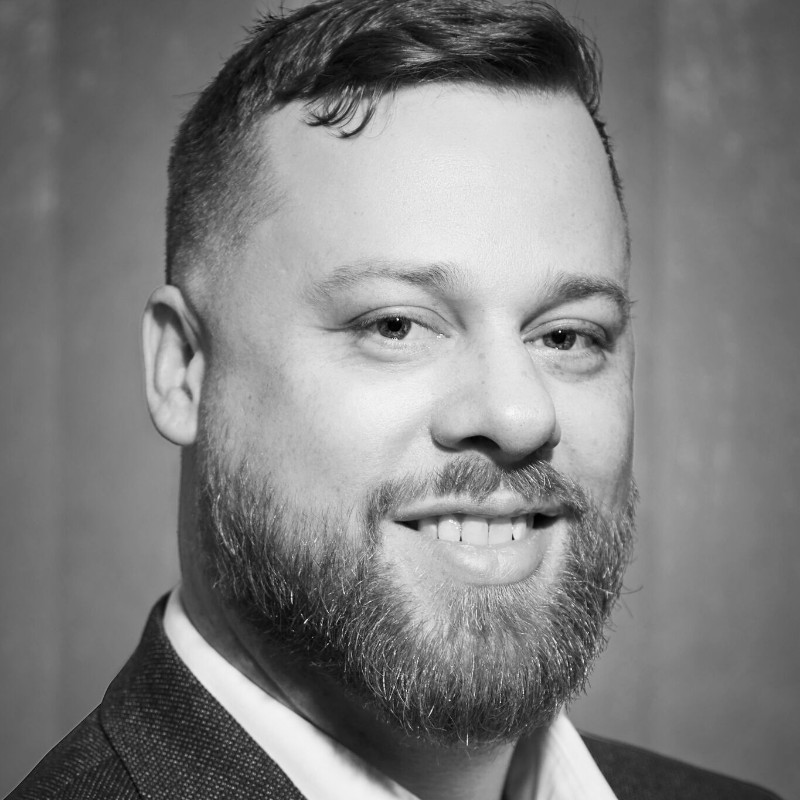
Dr. Justin E. Lane
CEO and Co-Founder of CulturePulse AI
-
Dr. Arnold Sinisalu is a former Estonian internal security officer and lawyer. From 2013 to 2023, he was the fifth Agency Executive of the Estonian Internal Security Service and held the rank of police general-inspector. He holds a doctorate in law from University of Tartu, which he defended in 2012. The topic of his thesis was ‘Restrictions to Subversive Leverage in International Law’. Dr. Arnold Sinisalu worked in the EISS for 30 years, since 1993, mostly in executive positions. Among other things, he participated as an investigator in the EISS proceedings concerning the so-called ‘rouble transaction’ that took place in 1992–1993 and the ‘tape scandal’ of 1995. He has also participated in the research group investigating the sinking of MS Estonia. In the 1990s, he also dealt a lot with organised crime at the EISS, focusing on the illegal explosives and arms trade. During his lengthy service, he was awarded the Order of the Cross of the Eagle, 4th class, in 2005, the Order of the Cross of the Eagle, 2nd class, in 2021 and the gold decoration of the Ministry of the Interior in 2023. Since March 2018, he has been a Chevalier of the Legion of Honour.
Dr. Arnold Sinisalu has named Yevgeny Zamyatin’s novel We and Anton Hansen Tammsaare’s novel series Truth and Justice, as well as the sociologist Norbert Elias’ The Civilizing Process and the works of the Canadian historian Margaret MacMillan and the British-Polish historian Norman Davies as works that have inspired him. 
Dr. Arnold Sinisalu
Former Head of Estonian Internal Security Service and lawyer
-
Dr. Solvita Denisa-Liepniece is a communication scholar with an expertise in strategic communication and cognitive resilience. She is an Assistant Professor at Vidzeme University of Applied Sciences, and a Senior Program Manager at IREX. Recently, she was a Visiting Research Scholar at Sandia National Laboratories (Center for Global Security and Cooperation), working on a research security topic. From 2022 to 2024, Denisa-Liepniece was working at the United Nations, at the Department of the Global Communications. From 2022 to 2023, she was an elected member of the Committee of Experts on Increasing Resilience of Media (MSI-RES), the Council of Europe. In 2021-2022, Dr. Denisa-Liepniece was a Visiting Scholar at the Jordan Centre for Advanced Study of Russia, New York University. Previously, she was an Associate Research Scholar at Yale University (Juris Pageds Visiting Fellow, 2020). From 2016 to 2022, Dr. Denisa-Liepniece was a media literacy and disinformation resilience advisor at the Baltic Centre for Media Excellence (BCME).
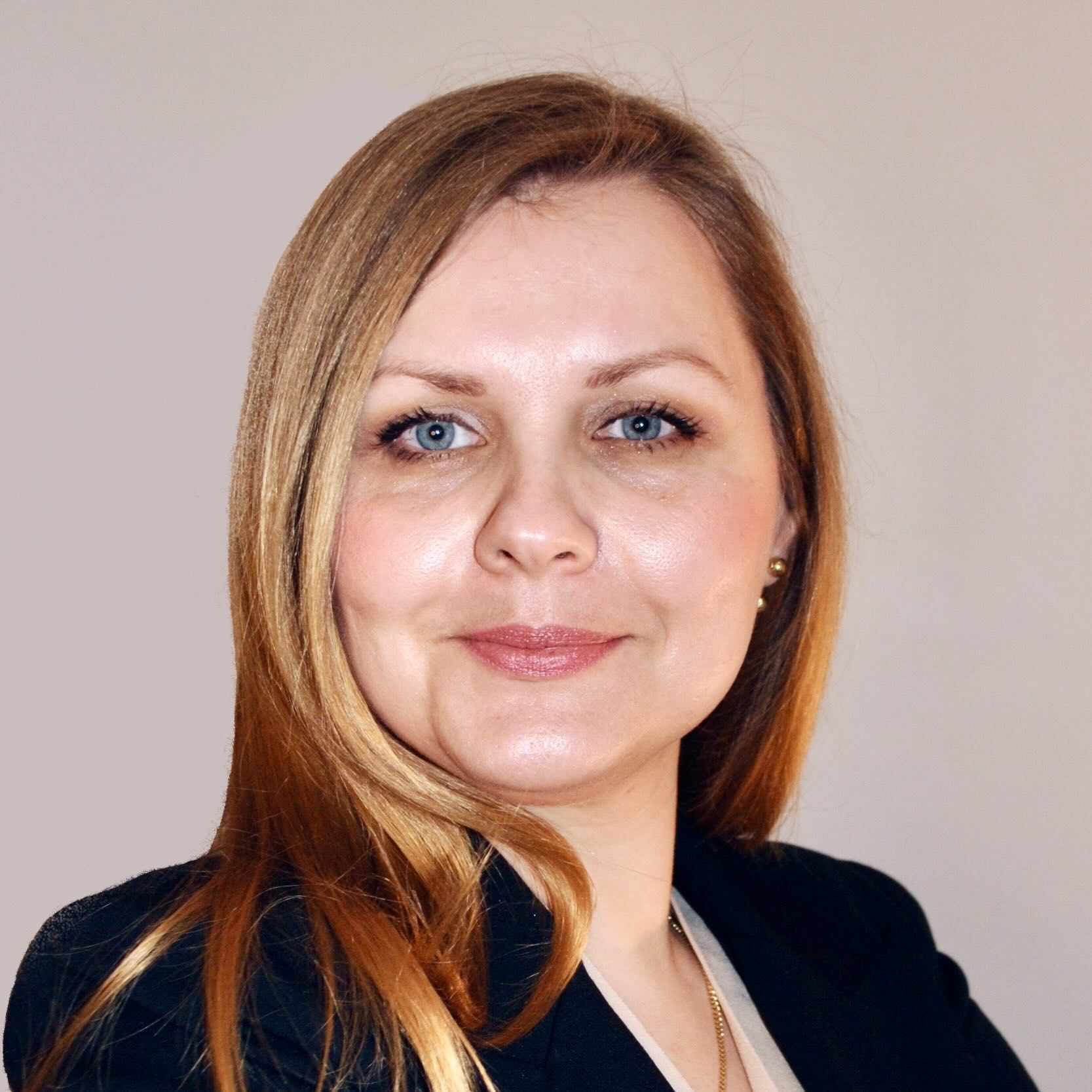
Dr. Solvita Denisa-Liepniece
Senior Program Manager at IREX
-
Ms. Annika Sandlund (DOB: 10 October, 1971) is a Finnish citizen and the Representative of UNHCR’s Representation for the Nordic and Baltic Countries. Prior to working for UNHCR, she was an International Observer for WFP in Iraq, worked for the IRC, ECHO, the Finnish National Broadcasting Service in Swedish, and the Ministry of Social Affairs in Finland. Ms Sandlund has a Master’s Degree in Human Rights and Democratization from the Essex University, UK and Master’s Degree in Political Science as well as Bachelor’s Degree in Journalism from the University of Helsinki, Finland. Ms. Sandlund speaks Swedish (mother tongue), English, Finnish and French.

Annika Sandlund
UNHCR representative in the Nordic and Baltic countries
-
Dr. Heidi Maiberg is a Doctor of Criminology (PhD) who graduated from Royal Holloway, University of London and whose research focuses on terrorism studies. Her main field of interest relates to methods of supporting the deradicalisation and rehabilitation of extremists and their impact assessment, the latter being the focus of her PhD thesis. Together with colleagues, Maiberg has conducted research and created teaching materials and training courses on preventing extremism through education. Her massive open online course, or MOOC, ‘Radicalisation: Entering, Exiting, and Preventing Extremism’ was awarded an e-course quality label in 2023. Her research has been supported by HARNO, the Home Office of the UK, the Police and Border Guard Board, and the Estonian National Culture Foundation. She currently works at the Ministry of the Interior.
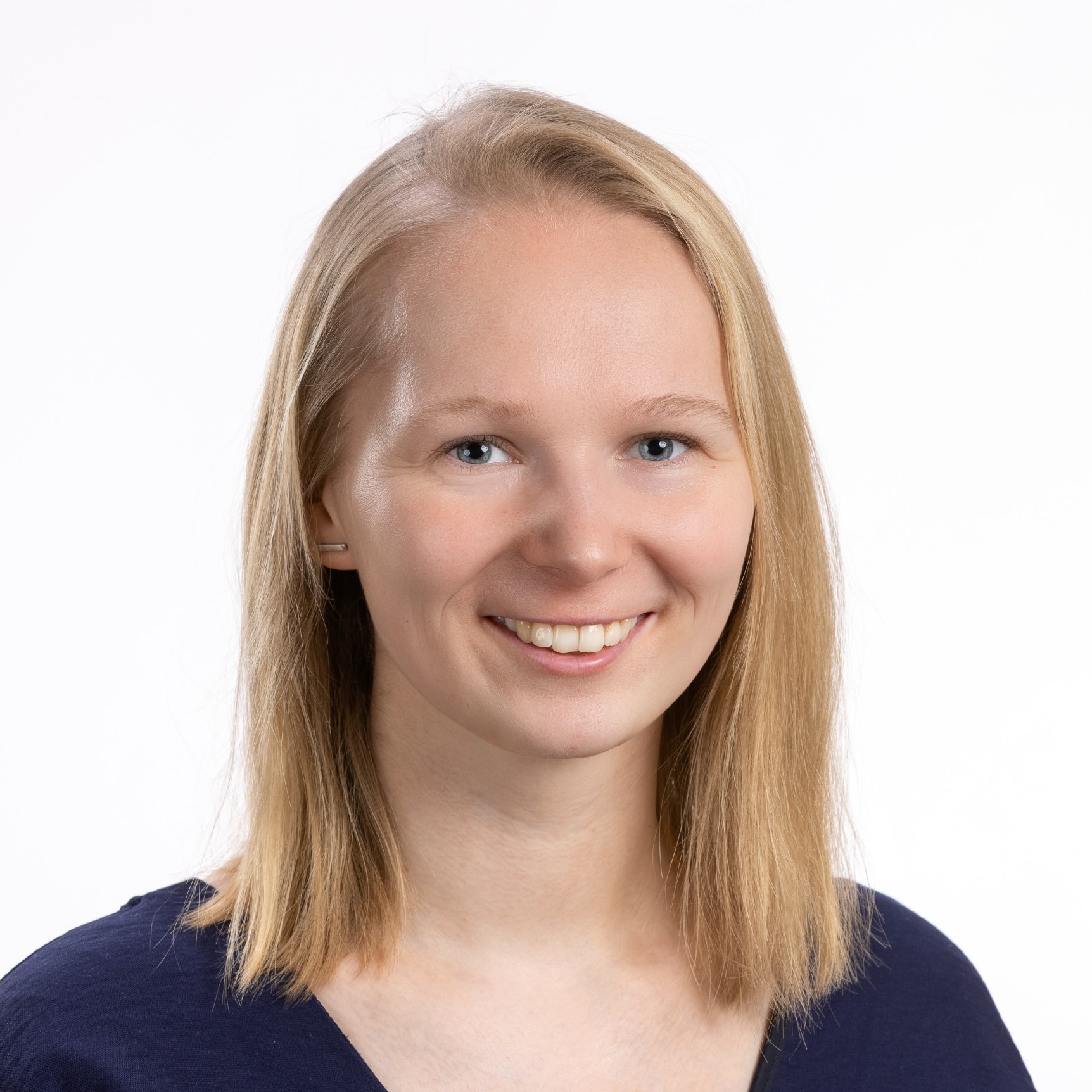
Dr. Heidi Maiberg
Ministry of the Interior, Royal Holloway, University of London
-
Birgit Lüüs-Jakobs is currently serving as an advisor at the Strategy Department of the Government Office of Estonia. She has a diverse background in asylum and migration policy, with extensive experience both in Estonia and on the international stage. Birgit has held positions at the Estonian Ministry of the Interior as Deputy Head of the Department of Citizenship and Migration Policy and led the Asylum Working Party during Estonia’s presidency of the Council of the EU.
Before joining the Government Office, Birgit worked in the Directorate-General for Migration and Home Affairs at the European Commission, where she led the Fundamental Rights team within the Asylum Unit and was responsible for several key legislative acts within the European Union’s Migration Pact, including the Asylum and Migration Management Regulation.
Her extensive knowledge and hands-on experience make her a highly regarded expert who has made valuable contributions to the development of migration and asylum policies in both Estonia and the European Union. 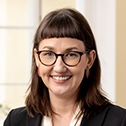
Birgit Lüüs-Jakobs
Estonian Government Office
-
Terje Trasberg is the Lead for the population and education team at the Department of Statistics. Her work includes putting together statistics for example for population size, births and deaths and life expectancy. Among her more important projects is for example the population and accommodation census that takes place every 10 years, the 2021. Year census was completed while relying mostly of state registers.
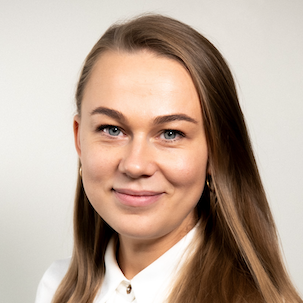
Terje Trasberg
Department of statistics
-
Petr Potchinchtchikov, born in Moscow, is living in Finland since 1994. Petr is a musician, Cultural producer, Entrepreneur (since 2002), currently working in the field of communications as a translator, interpreter, coach and speaker. Other previous tasks include being the Executive director for the Finnish Association of Russian-speakers Organisations (FARO), an expert for multiculturalism (Culture for all), working as a freelance journalist for YLE, the Finnish national broadcast company and as a producer for the City of Hamina, department for culture.
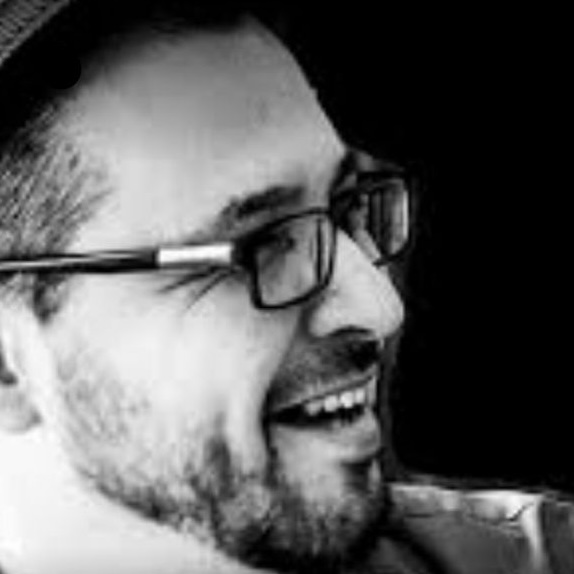
Petr Potchinchtchikov
Musician, Cultural producer, Entrepreneur
-
Anna Pihl is the journalist of the Estonian Public Broadcast. Agter graduating from the University of London in 2013 she started working for “Aktuaalne kaamera” (main news program), later joined the team of “Pealtnägija”(investigative TV-show). As an investigative journalist, she was awarded the Bonnier prize in 2020. Anna Pihl has also led such TV shows as “The first studio”, “Ringvaade”, “Christmas tunnel” and has reported on a number of elections. Her popular author show “Your new relative” was awarded the title of “The best newcomer” on the EFTA gala in 2022. Currently Anna is the host of the TV show “Impulss”.

Anna Pihl
Journalist of the Estonian Public Broadcast
-
Over 35 years in media business. HAs worked in television, radio and printed media in USA, Canada, Russia and Estonia. Masters degree in international affairs from the Columbia University in New York. Bachelor’s degree in organisational behaviour and communications from the New York University (NYU).
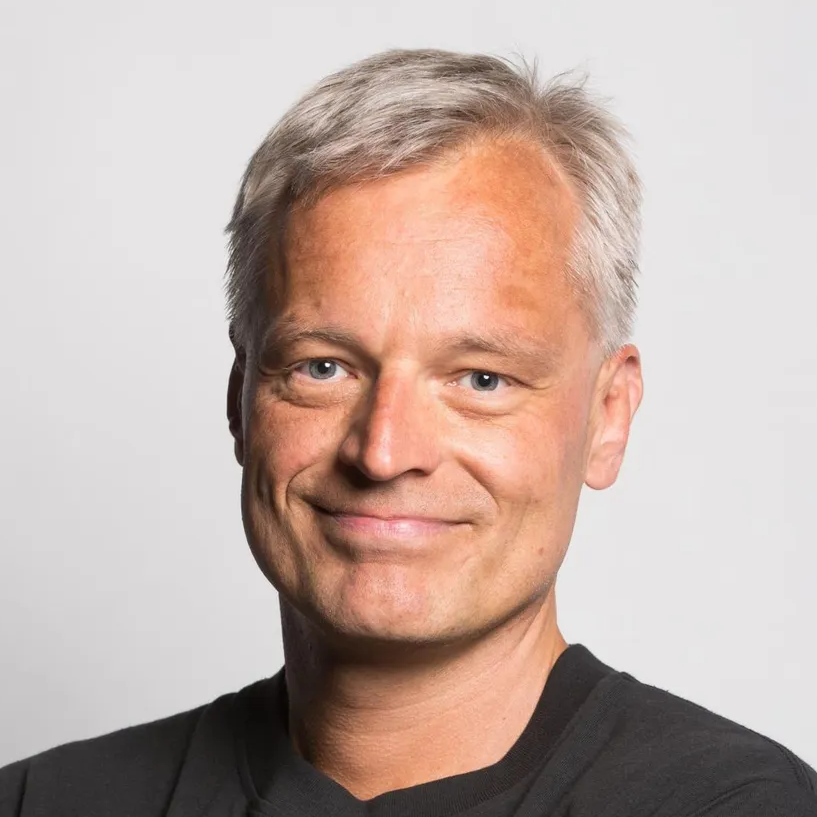
Neeme Raud
Journalist, news anchor and foreign correspondent
-
Born in Sillamäe, Uljana Kuzmina has worked for many years at the Estonian public broadcasting channel ETV+, where she presents the evening news program “Aktuaalne kaamera” and previously worked in a popular show “Interview of the week”. Uljana was the co-host of a TV show “Impulss” and currently she brings to the viewers the author show “Language and school” that focuses on the education reform to transfer all schools to Estonian language of instruction.

Uliana Kuzmina
Journalist of the Estonian Public Broadcast
-
Mari-Liis Jakobson is Associate Professor of Political Sociology at Tallinn University, Estonia. Her research interests centre around populism, politics of migration and transnationalism. She is currently the PI for the project ‘Breaking Into the Mainstream While Remaining Radical: Sidestreaming Strategies of the Populist Radical Right’ funded by the Estonian Research Council, which investigates how populist radical right parties reach out to atypical supporter groups. Her most recent publications include articles on transnational populism in European Political Science, Journal of Political Ideologies, Journal of Common Market Studies Contemporary Politics and Comparative Migration Studies, and an edited volume on the politicization of migration titled Anxieties of Migration and Integration in Turbulent Times with Springer (2023).

Prof. Mari-Liis Jakobson
Associate Professor of Political Sociology at Tallinn University, Estonia
